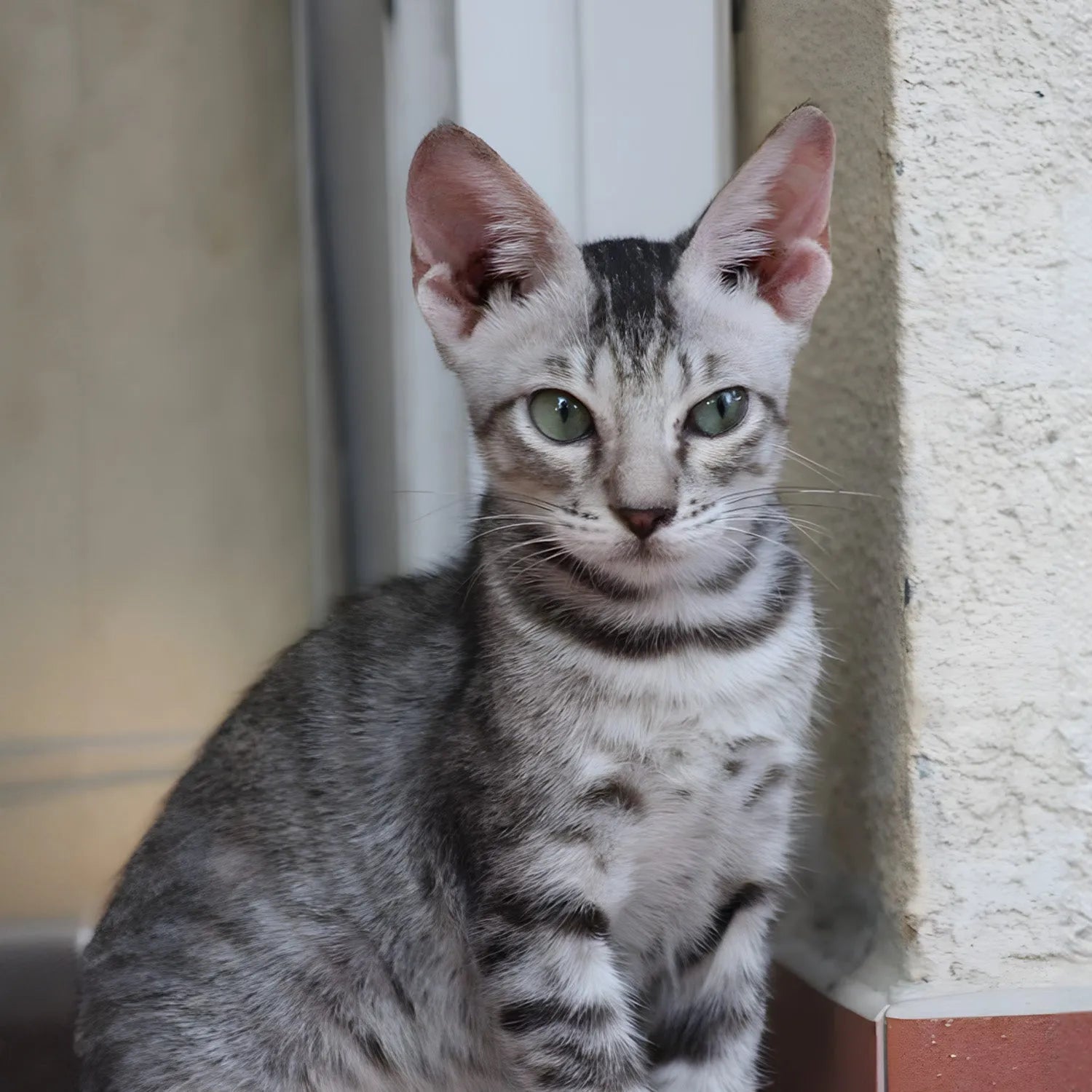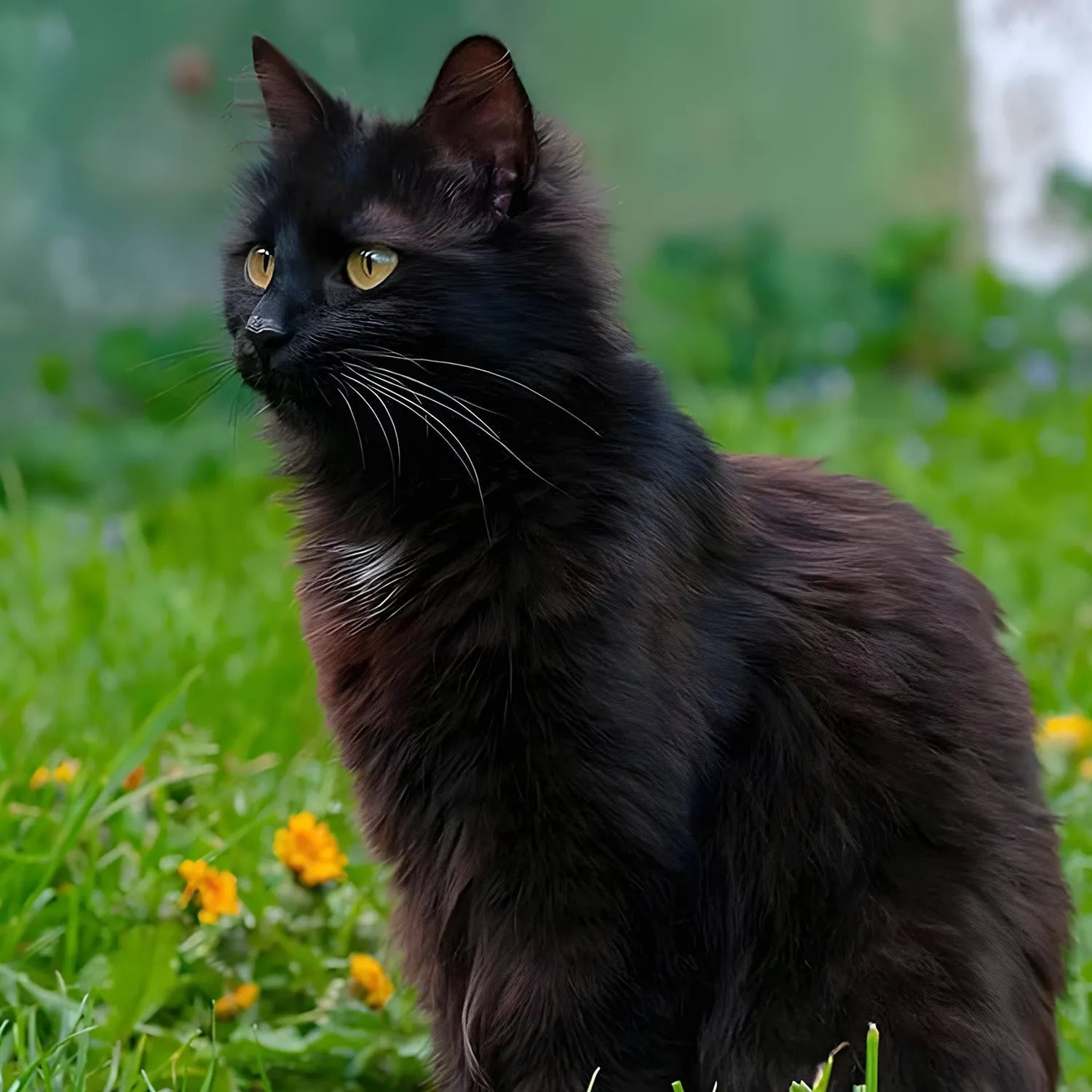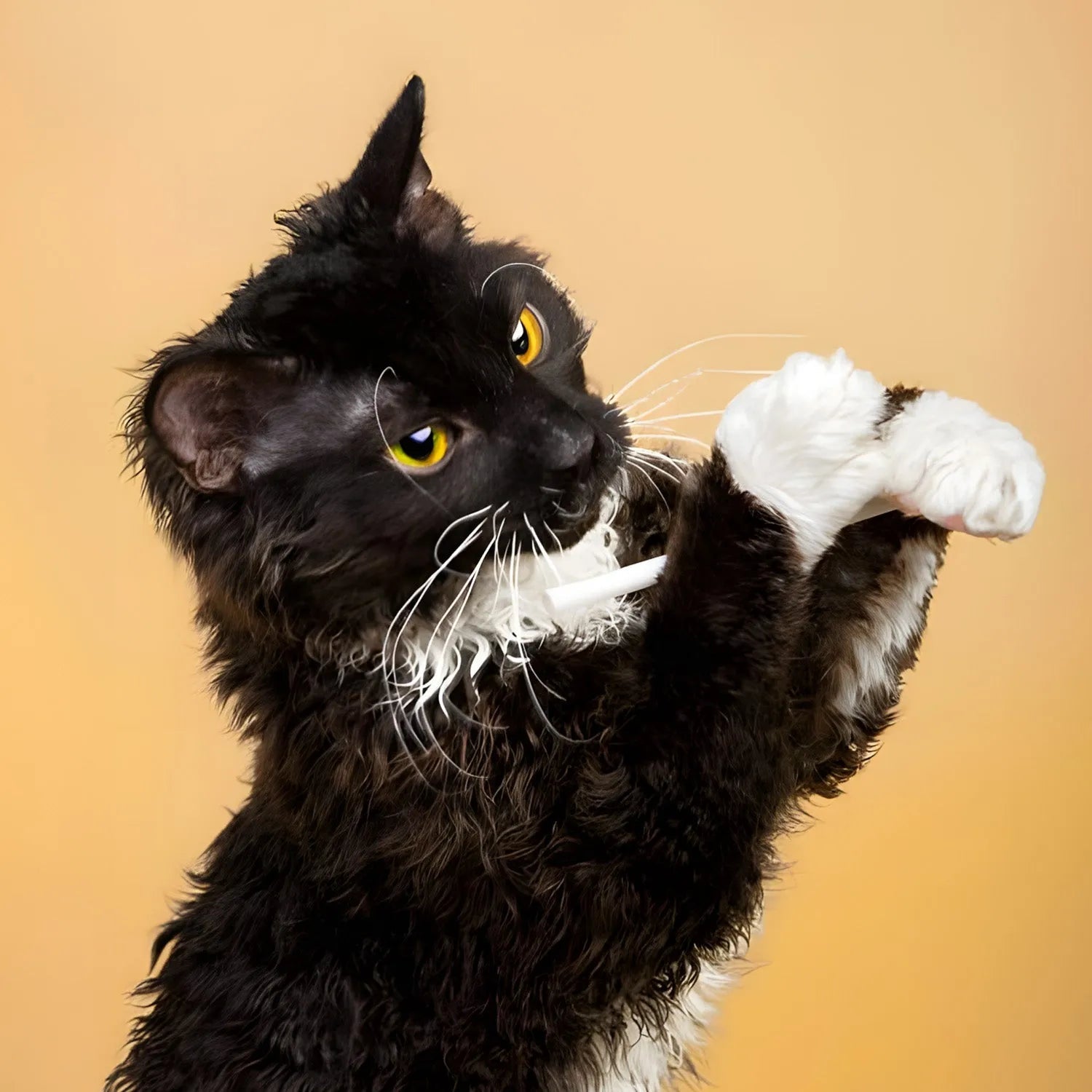Javanese: The Vocal and Elegant Long-Haired Feline
Introduction
The Javanese cat is a striking and elegant breed, known for its long, silky coat, stunning blue eyes, and social nature. A relative of the Siamese, the Javanese shares many of its ancestor’s traits, including a talkative personality, high intelligence, and graceful appearance. Javanese cats are affectionate and lively, making them ideal companions for those who enjoy a cat that’s both interactive and elegant. If you’re looking for a chatty, playful, and loving pet with a beautiful coat, the Javanese cat might be the perfect fit. In this blog, we’ll explore the Javanese’s lifestyle, behavior, grooming needs, trainability, and how it interacts with humans and other pets.
Ratings (1-5)
-
Environmental Adaptability: 4
-
Food Consumption: 3
-
Need for Companionship: 5
-
Trainability: 5
-
Tolerance of Children: 4
-
Ease of Domestication: 5
History and Origins
The Javanese cat is not from Java, Indonesia, as the name might suggest, but rather was developed in the United States in the 1950s. It is closely related to the Siamese, Balinese, and Oriental breeds, having been bred to enhance the longhaired, color-pointed traits of the Balinese while incorporating some of the vibrant color patterns of the Oriental Shorthair. Recognized as a distinct breed in the 1980s, the Javanese shares its lineage with the Balinese and is often considered the longhaired version of the Oriental Shorthair. Its stunning appearance, combined with its loving and interactive nature, has made the Javanese a popular choice among cat enthusiasts.
Physical Characteristics and Colors
The Javanese is a medium-sized cat with a slender, graceful build. Its body is muscular yet elegant, with long legs and a tapering tail. One of the most striking features of the Javanese is its silky, medium-length coat, which lies close to the body and requires minimal grooming compared to other long-haired breeds. The Javanese comes in a variety of colors, including seal, blue, chocolate, lilac, red, cream, and tortoiseshell, with color points on the face, ears, paws, and tail similar to the Siamese. Their almond-shaped blue eyes are striking and add to their overall elegant appearance.
Lifestyle and Behavior
Javanese cats are known for their vocal, playful, and affectionate nature. Like their Siamese relatives, they are talkative cats that enjoy "chatting" with their owners, using a range of vocalizations to express their needs and emotions. Javanese cats are incredibly social and thrive on human interaction, often following their owners from room to room and involving themselves in daily activities. They are energetic and love to play, making them excellent companions for individuals or families who can provide them with plenty of attention and stimulation. Javanese cats are known for their lively and outgoing personalities, and they enjoy interactive toys, games, and puzzles that challenge their intelligence.
Trainability and Intelligence
Javanese cats are highly intelligent and can be trained to follow commands, perform tricks, and even walk on a leash. They respond well to positive reinforcement techniques, such as treats and praise, and enjoy mental stimulation through puzzle toys, clicker training, and interactive play. Javanese cats are natural explorers and problem solvers, making them easy to train and a joy to interact with. Because of their intelligence and curiosity, they benefit from a stimulating environment that encourages play, exploration, and learning. Training sessions with Javanese cats should be fun and engaging, as they enjoy interacting with their owners and thrive on mental challenges.
Social Behavior and Human Interaction
Javanese cats are incredibly social and form strong bonds with their human families. They are affectionate cats that enjoy being involved in every aspect of their owner’s life and are known for their loyalty and devotion. Javanese cats are often described as "velcro cats" because they love to stay close to their owners, following them around the house and seeking out attention. They are vocal cats that enjoy engaging in conversations with their owners, using a range of meows, trills, and purrs to communicate. Javanese cats are happiest in homes where they can receive plenty of love and attention, making them ideal for individuals or families who enjoy spending time with their pets.
Compatibility with Children and Other Pets
Javanese cats are excellent companions for children due to their playful and patient nature. They enjoy interactive play and are generally tolerant of children’s antics, provided they are treated with respect. Additionally, Javanese cats tend to get along well with other pets, including dogs, as long as they are properly introduced. Their sociable and adaptable nature allows them to integrate well into multi-pet households, and they often enjoy the company of other animals as much as they do humans. Javanese cats are known for their ability to form strong bonds not only with their human families but also with other pets in the household.
Grooming and Care
The grooming needs of a Javanese are minimal due to their silky, medium-length coat, which does not mat easily. Weekly brushing is usually sufficient to remove loose hairs and keep their coat looking healthy and shiny. Unlike many long-haired breeds, the Javanese does not require daily grooming, making them a low-maintenance option for those who want a beautiful, longhaired cat without the need for constant care. Regular dental care, ear cleaning, and nail trimming are also important to maintain their overall health. Despite their low-maintenance grooming needs, Javanese cats enjoy the bonding time that grooming sessions provide, and it can be a great way to strengthen the bond between cat and owner.
Health and Lifespan
Javanese cats are generally healthy, but like all breeds, they can be prone to certain genetic conditions. Some of the most common issues associated with the breed include respiratory problems and dental issues, which are also common in their Siamese relatives. Regular veterinary check-ups and a balanced diet are essential to maintain their health. With proper care, Javanese cats can live up to 12-15 years or more. Regular monitoring and preventive care are important to ensure a long and healthy life for your Javanese cat.
Environmental Adaptability
Javanese cats are adaptable and can thrive in various living environments, although they are particularly well-suited to indoor living due to their social nature. They are known for their resilience and can adjust well to different climates and household settings. Whether in an apartment or a house, Javanese cats will find ways to entertain themselves and stay active. However, they do best in environments where they can receive plenty of attention and interaction from their owners. Their adaptable nature makes them well-suited to a wide range of living conditions, but they thrive best in homes where they are treated as part of the family.
Feeding Requirements
A balanced diet is crucial for maintaining the Javanese cat's health and energy levels. High-quality cat food that is rich in protein is recommended. Fresh water should always be available. Because Javanese cats are active and playful, they may require more calories than less active breeds. Consult your veterinarian for specific dietary recommendations based on your cat's age, weight, and health needs. Monitoring their diet to prevent obesity is important, as Javanese cats can be prone to overeating if not properly managed.
Conclusion
The Javanese is an elegant, vocal breed that brings beauty, intelligence, and companionship to any household. Their intelligence, affectionate nature, and striking appearance make them wonderful pets for families and individuals alike. If you're looking for a cat that will form a deep bond with you and keep you entertained with its lively personality, the Javanese might be the perfect fit for you.
For more information about other cat breeds and pet care tips, stay tuned to our blog!
References:
-
Thompson, R. (2021). "The Vocal and Elegant Javanese Cat." *Journal of Feline Studies*, 35(3), 201-215.
-
Richards, A. (2020). "Caring for Your Javanese Cat: A Comprehensive Guide." *Cat Lover’s Magazine*, July issue, pp. 30-40.
-
Harris, E. (2019). "Health and Wellness in Javanese Cats." *Veterinary Journal*, 79(2), 123-137.


